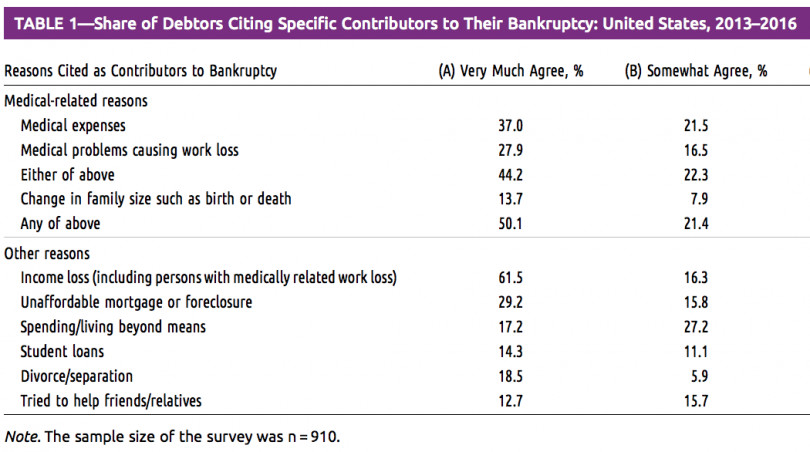When Americans get sick these days, many hesitate to take an ambulance to the ER. Even with insurance, the costs can be several thousand dollars. Overpriced health care too often means bankruptcy, when it doesn’t mean large numbers of people forgoing care.
The Atlantic reports on an uninsured woman who suffered a mini-stroke and went to the ER overnight. She received a battery of tests and was discharged. The bill was $26,203.62 total for “observation.” On top of that. she was charged $1,301 for consultations with two doctors. She was charged $1,316 for X-rays and other diagnostic tests. And, the ambulance company charged her $1,807, which she was able to knock down to 1,084.
Unlike citizens of other wealthy countries, Americans find themselves relatively often in medical debt. The American Journal of Public Health reports that almost six in ten Americans who file for bankruptcy do so in some part because of medical debt. Medical debt is more often given as a reason for bankruptcy than student loans or bank foreclosures.
One in three cancer survivors go into medical debt. Of those, one in 11 file for bankruptcy. Collection agencies see more unpaid medical bills than any other type of bill. About one in five Americans have credit reports that reflect medical claims.
Medical debt most often results from ER visits and elective surgeries. People may go into debt just paying the thousand dollar plus deductibles that are increasingly common. Or, they go into debt because their in network hospitals assign them out of network doctors, who surprise them with bills their insurers often won’t pay.
Three in 10 Americans delay care to avoid these bills, according to a December 2018 Gallup poll. People without insurance are most likely to deny care–54 percent. But, high deductibles and coinsurance lead 30 percent of people with insurance to delay care as well. People with Medicare and Medicaid are least likely to delay care—22 percent.
What can you do to protect yourself from big medical bills when you seek care? If you have a large bill after your Medicare Advantage or other health insurer pays, you should ask the hospital or doctor for a discount. Sometimes they will provide one.
As important, make sure your representatives in Congress and presidential candidates support Medicare for All. Presidential candidate Beto O’Rourke and others who support what they call Medicare for America are doing little if anything to address overpriced health care or to keep people from medical debt. Only Medicare for All reins in costs, lets you see any doctor and use any hospital in the US, and eliminates deductibles, premiums and coinsurance.
Here’s more from Just Care:










